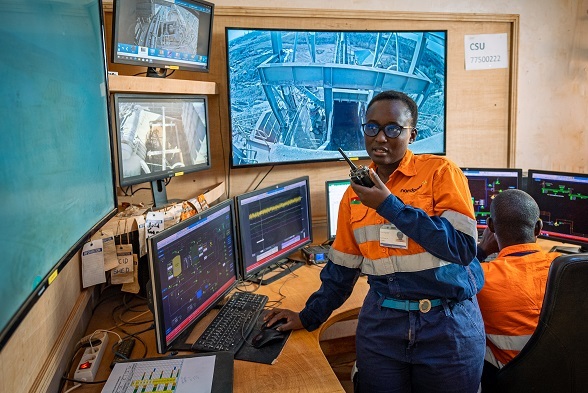Pantaloon Retail is India’s most successful and fastest growing retail business; and the secret of its success lies in questioning every received management mantra.
Kishore Biyani, founder and CEO of Pantaloon Retail’s parent Future Group, is a man full of paradoxes. You can’t even categorise him as unconventional or a maverick, because he rules nothing out. He definitely doesn’t discount Western models of retailing as exemplified by Wal Mart or Tesco; indeed his first visit abroad was to London and the first store he went into was Marks & Spencer, which, he admits, had a huge influence on him. “I have learnt a lot from every retailer I have seen,” he says—and over the years he has seen them all.
But he uses none of them as a direct model, and the principle that sits at the core of the business empire he has built up really wouldn’t work for a brand that wants to be global, offering a seamless experience from Chicago to Hong Kong. “Future Group believes in developing strong insights on Indian consumers and building businesses based on Indian ideas. In everything we have done, we have kept the consumers in mind. That is what has worked for us,” he says.
Customer focus is an axiom in business these days; but very few entrepreneurs have taken as much trouble as Biyani to analyse exactly what that means. He has no desire to extend the Pantaloon business model outside of India: and with one billion customers out there, that makes every kind of sense. “We can’t understand any other market like we understand our home market.”
Biyani was born into a middle class family but refused to join the family business, preferring to develop a parallel business of his own. His early venture into textile trading after he graduated in marketing in 1983—a yarn factory—failed. Though he learned from the experience, it did not turn him into a risk-averse entrepreneur. “Ibelievethat if you don’t go through the process of mistakes you can’t evolve.” He quickly established himself as a supplier of textiles to the fashion industry, in 1987 launching the Pantaloons brand of men’s trousers that gives the name to the present day retail network.
The first large Pantaloons store was opened in Kolkata in 1997. Biyani dates the growth of the modern business from this event, and he has a particular affection for a city that he thinks epitomises the concept of Indianness. “We believe India is a community-led country. We have launched most of our brands in Kolkata. We understand the communities there, and the people there are emotionally attached to our brands.”
No matter what part of India you are talking about, diversity is the norm, he continues. This is a fundamental way in which India differs from the markets studied in MBA courses and into which global retailers attempt to fit their strategy. Indian consumers just don’t feel comfortable if you treat them as a homogeneous entity. “There are many ethnic groups, and the customers are learning to spend; so our job is to create products for them, create an environment in which they can buy,” he says. “Emotionally we are attached to our consumers. We have developed an Indian way of working and an Indian management style, and that has been very unique to us.”
His stores, especially Big Bazaar—a hypermarket format that combines the look, touch and feel of Indian bazaars with the choice and convenience of modern retail—have been described as chaotic, something that is anathema to present-day received retail thinking. How wrong that thinking is in the Indian context, he believes: superficial chaos belies the Indians’ underlying sense of identity and is essential to keeping them in their comfort zone. “I think we are a chaotic nation. Our bazaars, the way people use transportation, the way the different communities interact, are all part of it. If you model everything on international standards you eliminate people because it is not a familiar environment to them. But we want people to come in and feel comfortable.”
The same applies to the other group formats, including the original fashion retail chain Pantaloons, the Central shopping malls, the Food Bazaar supermarkets and speciality outlets like Planet Sports, Home Town, electronics retailer eZone, rural retail chain Aadhaar and even the online portals. Of course these are anything but chaotic in their stock control, CRM and POS infrastructure—but they all capture the feel of Indian society.
Over the last decade Pantaloon Retail has grown at up to 40 per cent per annum but it has now throttled back to a more manageable 25 per cent, he says. “Growth is still very satisfactory, but it is spread over a larger base now that we are operating over 16 million square feet of retail space. Our strategic goal is to retain our leadership in the various formats which we have developed whether they be hypermarkets, department stores, fashion stores or electronics outlets.”
Over recent years Future Group and Pantaloon Retail have grown on the wider margins offered in the textiles and fashion business. However if you are talking about scale, the future has to be in food, and this is where the group is concentrating its efforts now. Modern retail rests on two pillars, Biyani says: scale, which the group is patently achieving, with a consolidated turnover in 2010 of $2.2 billion (a 28 per cent increase over 2009), and supply chain efficiency. “These are the two key differentiators which will separate one retailer from another.”
Pantaloon is now targeting the food supply chain. It already claims to have the lowest cost of delivery of anywhere in India, whether in the traditional retail sector or among the supermarkets; however, it now intends to get involved much further back down the supply chain. “We are already the market leaders in both fashion and food, but over the coming couple of years we are going to focus much more on food. We are aiming to get as close as we can to the farms by creating consolidation centres that will purchase direct from large numbers of small farmers. We have also started to focus on fresh fruit and vegetables.” India has still not cracked the problem of how to get a wide range of vegetables and fruit available across the country.“We will offer the entire spectrum, throughout the year, at good prices, good quality and consistent availability.”
Compared to other countries, where the number one retailers achieve in the range of 1.7 to three per cent of their GDP, Pantaloon has a strong upside potential in India, where the number one retailer achieved 0.1 per cent in 2009. The world’s best-performing supermarket chain, Tesco, managed three per cent of UK GDP in the same year.
Pantaloon has surfed India’s growth wave, says Biyani. “India gave us the opportunity as it grew. The customers wanted something new, and I think India was ready. We didn’t have to do much! The market was there and we took the plunge and we have taken some fast decisions. That is the whole story.” www.pantaloonretail.in
DOWNLOAD
 Pantaloon_SEPT11_emea-bro-s.pdf
Pantaloon_SEPT11_emea-bro-s.pdf












